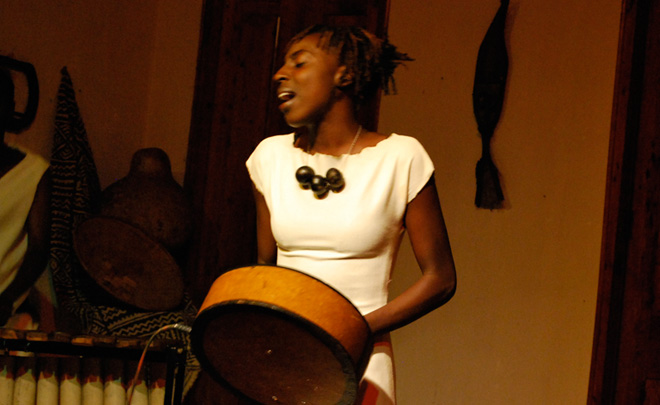
By Nyasha Themba Dhliwayo
Although it is her third studio production, Hope Masike’s upcoming album, Exorcism of a Spinster, comes laden with many firsts for the Princess of Mbira.
For starters, on this particular album, Masike brings on board the production, Erik Nylander, a Swedish producer and drummer.
“Erik Nylander and I have worked together in the Afro-Nordic outfit Monoswezi,” Masike told Standard Style in an exclusive interview.
“When I made him listen to some of my ideas for this album, he loved them and asked me to come to the studio so that we could work on this album together.”
This development comes with the addition of new instruments such as organ, mini-moog and programming, which the mbira songstress had never incorporated into her previous albums.
Furthermore, on Exorcism of a Spinster, Masike had the whole project mixed and mastered overseas for a different feel.
Mixing is the process of adjusting and combining the different parts/tracks in a piece, such as the various instruments and vocals, into one well-balanced audio file without anything unnecessarily overshadowing the other.
- Chamisa under fire over US$120K donation
- Mavhunga puts DeMbare into Chibuku quarterfinals
- Pension funds bet on Cabora Bassa oilfields
- Councils defy govt fire tender directive
Keep Reading
Mastering is the next process after mixing, where the various songs are polished and arranged to form a cohesive whole on an album.
Exorcism of a Spinster was mixed in Denmark and mastered at Stockholm Mastering in Sweden.
Masike said although outsourcing this process to overseas sound engineers was costly, she had decided to take this route in order to give mbira musik lovers the best possible listening experience for this album.
“I listened to different projects, compared the final sound on different sound systems and chose the sound I found best for this album,” she said.
For mbira music connoisseurs, another significant development on Masike’s upcoming album will be that for the first time she played the lesser known, but reputedly more demanding nhare type of mbira.
The nhare mbira, also known as mbira dzavadzimu (mbira of the ancestors), normally has a deeper sound and wider range.
It has more keys and a heavier Shona traditional music repertoire.
The late Chiwoniso Maraire and her father Dumisani Maraire, are among those who played and popularised nyunga nyunga, which is now found in many schools.
On the other hand, nhare or mbira dzavadzimu is the type that Mbuya Stella Chiweshe and the late Mbuya Beulah Dyoko play.
The powerful sound of the nhare mbira also forms the musical backdrop of many traditional Shona ceremonies.
Despite these sonic firsts, Masike said that the themes that have endeared her to audiences locally and abroad still remain a part of the upcoming album’s fabric.
“On The Exorcism of a Spinster, I have tweaked the sound in order to express my growth as an artiste, however I still express my soul as passionately as ever.
“I still touch love in all its shapes, from the more sensual type of love to the love of one’s roots,” the mbira doyen said.
“In all this, I continue to celebrate our rich African culture.
The Exorcism of a Spinster will be launched officially on July 26 at Reps Theatre in Harare.
Masike’s previous albums are her self-titled debut Hope, released in 2009, and Mbira, Love and Chocolate released in 2012.
Both were self-released, but The Exorcism of a Spinster scores a first as it is her first album to be released under contract to a record label, London-based Riverboat Records.











